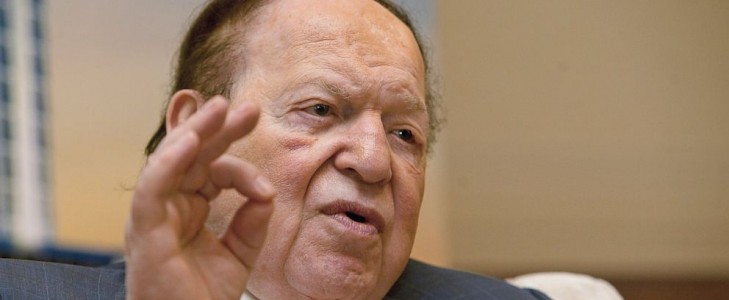Former Republican Ron Paul built his political career on protecting the personal liberties of Americans. And this is a big reason why he fought against the Unlawful Internet Gambling Enforcement Act (UIGEA) and co-sponsored a federal bill that would’ve legalized online poker. Add in Paul’s tendency to go against his party, and it makes sense that he recently blasted GOP mega-donor Sheldon Adelson over his attempt to make iGaming illegal throughout the United States.
Paul, a two-time US Presidential candidate, ripped efforts behind Adelson’s Restoration of America’s Wire Act (RAWA) through a post on his website. As Paul writes, this is “crony capitalism,” where politicians create laws to help their favored business beneficiaries. Below you can see more on what the former Texas House Rep wrote, as we cover the key excerpts.
A favor to Adelson
Not long ago, New Jersey State Senator Raymond Lesniak called out Gov. Chris Christie for delaying PokerStars’ entrance into the Garden State as a favor to Adelson. Paul believes that the problem goes far beyond one individual, though, since the entire idea of letting RAWA come to a vote is a favor to the billionaire:
“It is an open secret, at least inside the Beltway, that this legislation is being considered as a favor to billionaire casino owner, Sheldon Adelson. Mr. Adelson, who is perhaps best known for using his enormous wealth to advance a pro-war foreign policy, is now using his political influence to turn his online competitors into criminals.”
Moral arguments are actually backwards
Many proponents of banning iGaming deliver the argument that it will prevent money laundering and other criminal activities. However, Paul argues that stopping efforts to legalize iGamng will only encourage black market online casinos and poker sites:
“Instead, they give a number of high-minded reasons for wanting to ban this activity. Some claim that legalizing online gambling will enrich criminals and even terrorists! But criminalizing online casinos will not eliminate the demand for online casinos. Instead, passage of this legislation will likely guarantee that the online gambling market is controlled by criminals.”
RAWA is unconstitutional
Another pro-RAWA argument is that it will protect states rights by preventing residents from non-iGaming states from accessing online gaming sites from other states. However, Paul points out that this logic doesn’t hold up against the Constitution:
“Nowhere in the Constitution is the federal government given any authority to regulate activities such as online gambling. Arguing that “states rights” justifies creating new federal crimes turns the Tenth Amendment, which was intended to limit federal power, on its head.”
This is a threat to liberty
As we mentioned in the introduction, Paul is about protecting the liberties of US residents. And he sees RAWA as a clear attempt to stomp on these liberties and give Congress control over the internet:
“Giving government new powers over the Internet to prevent online gambling will inevitably threaten all of our liberties. Government bureaucrats will use this new authority to expand their surveillance of the Internet activities of Americans who have no interest in gambling, just as they used the new powers granted by the PATRIOT Act to justify mass surveillance.
The proposed ban on Internet gambling is a blatantly unconstitutional infringement on our liberties that will likely expand the surveillance state. Worst of all, it is all being done for the benefit of one powerful billionaire. Anyone who thinks banning online gambling will not diminish our freedoms while enriching criminals is making a losing bet.”
Ron Paul may not have a vote in Congress any longer. However, he still holds popularity from his two Presidential runs in 2008 and ’12. So the fact that he’s doing his best to make the American public aware of the injustice behind RAWA is a good thing.
